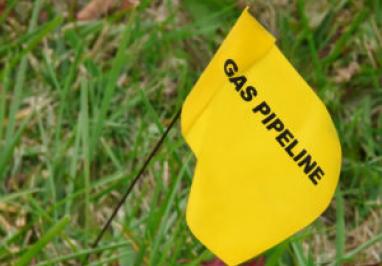
A tragic explosion at a house in Murrieta, California on July 15, 2019, serves as an important reminder to confirm where utility lines are marked prior to excavation of any sort. According to officials, the explosion occurred when a solar contractor split the natural gas line while doing installation work. The technician was killed in the resulting explosion and at least 15 others were injured. Like most states, California law requires citizens to confirm where gas lines and other utilities are located by calling 811 before excavation. However, officials say the contractor failed to call 811 to mark and confirm the gas lines marked in advance of construction.
The Nebraska One-Call Notifications System Act, often referred to as Nebraska811, was first established in 1994 to open the channels of communication between underground utility operators and the public during excavation projects in the state of Nebraska. Generally, the Act requires everyone who excavates or disturbs the surface of the ground in the state of Nebraska, to dial “8-1-1” two (2) business days in advance of excavation so that operators of underground facilities can locate and mark the existing facilities.
This past May, Legislative Bill 462 was signed into law by the governor. As a result, the Nebraska One-Call Notifications System Act underwent several notable changes including a provision calling for plastic or nonmetallic underground facilities to be locatable by mapping or use of tracer wire when installed. In addition, the Act now provides that locators-individuals that identify and mark underground facilities- must be trained in “locator standards and practices applicable to the industry.”
The call center, which is responsible for providing information to operators concerning intended excavations, is governed by a board of directors. The board of directors is tasked with carrying out the One-Call Notification System Act. The recent changes to the Act refined the board of directors’ role by emphasizing its authority to propose rules and regulations to accomplish this goal. The amendments to the Act empower the board of directors to review locator training materials provided by operators, locators, and excavators and make recommendations regarding best practices for locators, when deemed appropriate. The board is also obligated to provide a report to the governor and the legislature evaluating the effectiveness of enforcement programs, enforcement actions, and damage prevention and public awareness programs surrounding excavations and the Act. An annual report from the attorney general on the number of complaints filed and prosecuted for violations relating to underground pipeline facilities is now required pursuant to the changes in the Act.
Changes to the administrative rules have been proposed as well. On May 13, 2019, the Nebraska State Fire Marshal held a public hearing to receive comments about the proposed regulatory changes. The Nebraska Chapter of the National Utility Contractors Association (“NUCA”), the leading trade association and voice for Nebraska’s utility construction and excavation industry, offered testimony in support of the proposed regulations, which change the structure and composition of the board of directors. The proposed regulations add four (4) voting members to the board from the private excavation industry. NUCA believes these “proposed changes will result in meaningful representation for private excavation companies which is imperative as the rules and regulations must reflect a balance of the often competing interests of excavators and operators.”
Contractors that perform location services for utility operators and contractors involved in excavation work should review the recent changes to the Act to ensure compliance with the new requirements.
If you have any questions or need assistance, please contact one of Woods Aitken’s Construction Attorneys. For additional construction news, tips, and updates, we encourage you to view our Construction E-Brief archives.
